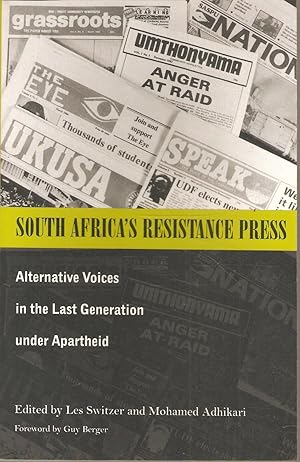Throughout the annals of history, few injustices have been as pervasive and insidious as apartheid in South Africa. This state-sanctioned system of racial segregation and oppression lasted from 1948 until the early 1990s, leaving indelible scars on the fabric of South African society. Yet, amidst the bleakness of this epoch emerged a constellation of voices that not only resisted the oppressive regime but articulated visions of hope and resilience. This listicle explores some of the most profound books that delve into apartheid, illuminating the narratives of resistance and the profound questions of cultural relativism that arise within these discourses.
1. “Long Walk to Freedom” by Nelson Mandela
No discussion of apartheid literature can be complete without Nelson Mandela’s seminal autobiography. “Long Walk to Freedom” chronicles Mandela’s odyssey from a rural village to the heights of political leadership. His narrative is not merely a personal account; it is an intricate tapestry woven with the broader socio-political struggles of his compatriots. Through Mandela’s lens, readers gain insight into the complexities of identity, loyalty, and sacrifice. His reflections encourage an understanding of cultural relativism, challenging readers to consider the multiplicity of perspectives and experiences that exist outside the dominant narratives of power.
2. “A Dry White Season” by Andre Brink
Novelist Andre Brink’s “A Dry White Season” serves as a penetrating critique of the apartheid regime from the vantage point of a white protagonist, Ben Du Toit. The narrative captures the gradual awakening of Du Toit to the injustices faced by black South Africans, particularly through the harrowing experiences of his domestic worker, Gordon. Brink’s portrayal illuminates the moral ambiguity faced by individuals in an unjust society. It compels readers to reflect on the intersection of privilege and responsibility, fostering a dialogue on the challenges inherent to standing against systemic oppression.
3. “The Power of One” by Bryce Courtenay
Although a work of fiction, “The Power of One” unfurls a deeply poignant story centered on the life of a young boy, Peekay. Through his journey, Courtenay explores themes of resilience, mentorship, and personal agency. Set against the backdrop of an apartheid-enforced society, Peekay’s encounters with various characters, including a black prisoner and a German mentor, represent the richness of South African cultural diversity. This narrative fosters understanding and empathy amongst disparate groups, highlighting the potential for collective action in the face of oppression.
4. “Biko” by Donald Woods
Journalist Donald Woods provides an intimate portrait of Stephen Biko, an influential anti-apartheid activist. In “Biko,” Woods chronicles Biko’s ideology and his role in the Black Consciousness Movement. Woods’ account underscores the profound interconnectedness of individual and collective identity in the struggle against racial oppression. As readers engage with Biko’s philosophy, they are invited to confront their own biases and assumptions, prompting a reevaluation of cultural norms and the often-unquestioned status quo.
5. “Soweto: A History” by the Soweto History Committee
This collective work documents the impact of apartheid on the residents of Soweto, one of South Africa’s most iconic townships. Through oral histories, photographs, and personal anecdotes, the narrative captures the vibrancy of life amidst adversity. The “Soweto: A History” reflects the profound intricacies of community identity and resistance strategies. By elevating the voices of ordinary individuals, this book poignantly illustrates the importance of grassroots movements in shaping the struggle against apartheid, challenging readers to consider the value of personal narratives in historical discourse.
6. “Country of My Skull” by Antjie Krog
Antjie Krog’s “Country of My Skull” offers a unique perspective on the Truth and Reconciliation Commission, which aimed to address the atrocities of apartheid. Krog’s lyrical prose intertwines her own observations with testimonies from victims and perpetrators alike. This poignant exploration of trauma, forgiveness, and the quest for justice prompts deep reflections on morality and ethics in the context of collective reckoning. The narrative underscores the need for a cultural relativist approach to understanding human experience, illustrating the myriad ways in which individuals process suffering and loss.
7. “The Tenderness of Wolves” by Stef Penney
This novel, while not strictly about apartheid, encapsulates the broader themes of isolation, otherness, and survival through the eyes of its protagonist, who seeks truth in a landscape fraught with danger. The story unfolds in a small community where secrets and prejudices abound, mirroring the societal fractures experienced in apartheid-era South Africa. The exploration of human connection amidst estrangement invites readers to ponder the complexities of cultural identity and the human spirit’s resilience.
Conclusion
The literature on apartheid is rich and multifaceted, offering an invaluable lens through which to examine the complex interplay of power, identity, and resistance. The authors of these works serve as conduits for the voices of those who endured oppressive systems, providing a vital understanding of cultural relativism. These narratives not only document the past but inspire future generations to engage with the enduring struggles for justice, equity, and humanity. By immersing oneself in these texts, readers are better equipped to appreciate the intricate tapestry of South Africa’s history and the universal lessons embedded within it.
